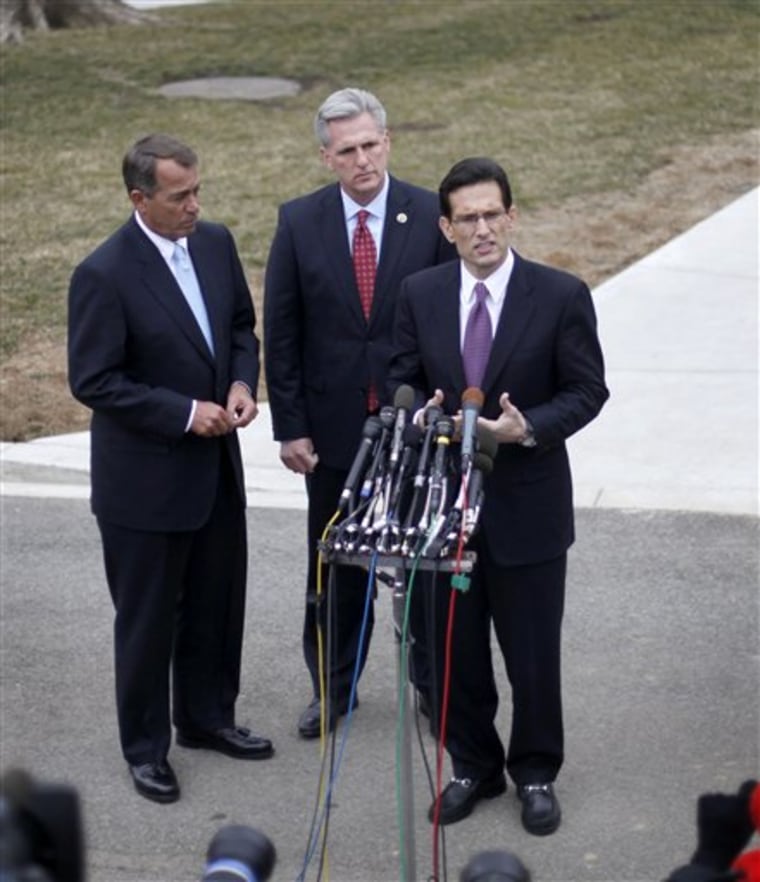President Barack Obama's budget plan would cut $100 billion from Pell Grants over a decade through belt-tightening but use the savings to keep the maximum college financial aid award at $5,550, an administration official said.
Most of the projected savings, more than $90 billion, would be achieved through two changes, said the official, who spoke on condition of anonymity ahead of Monday's release of Obama's 2012 budget. The spending plan applies to the budget year that begins Oct. 1.
Congress would have to approve both changes.
The first proposal would end the "year-round Pell" policy that let students collect two grants in a calendar year, with the second grant used for summer school. The official said the costs exceeded expectations and there was little evidence that students earn their degrees any faster.
The change would save $8 billion next year and $60 billion over a decade, the official said.
A second proposal would reduce loan subsidies for graduate and professional students. That would free $2 billion next year and save $29 billion over 10 years, according to the official.
The federal government currently pays the interest on student loans for some graduate and professional students as long as they stay in college. But the official said experts think the subsidy has failed to encourage more students to attend graduate school and that it isn't well-matched up with borrowers who have trouble repaying the loans after they leave school.
The administration also has expanded other programs to help students reduce their loan payments and ultimately forgive debt they can no longer afford to pay.
Another $4 billion in savings over 10 years would be achieved by broadening the use of IRS data to determine eligibility, reducing improper payments and easing the application process, the official said.
Faced with growing annual budget deficits and a national debt into the trillions of dollars, Obama has said his latest budget proposal would save $400 billion over the next decade, including a five-year freeze on most discretionary spending and cuts to programs that even he cares about.
But at the same time, Obama wants to spend in other areas, such as education and innovation that he says are important for long-term economic growth and competitiveness.
"It would be a mistake to balance the budget by sacrificing our children's education," he said Saturday in his weekly radio and Internet address, in an apparent warning to Republicans.
House Republicans want to cut $100 billion from the budget proposal Obama submitted for 2011 and education and college financial aid are expected to take a hit.
Congress never passed a budget for 2011.
The Pell Grant program is the primary college financial aid program for low-income students. The program helps more than 8 million students attend college each year, according to the White House, and under Obama the maximum award was increased to $5,550.
Demand for the grants — which don't have to be repaid — has increased sharply since the economic slump because more job seekers are returning to school to learn new skills and they need help paying the tuition, the administration official said.
The administration is projecting a $20 billion shortfall in the program next year.
